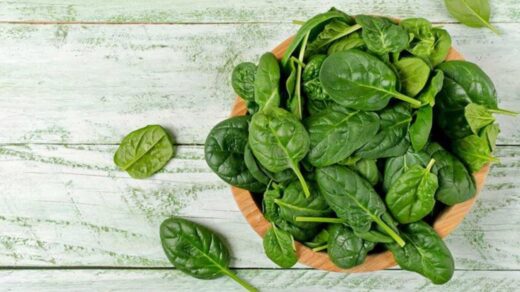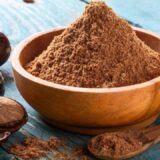Sip by Sip: The Correct Way of Drinking Water as per Ayurveda
In the realm of holistic wellness, Ayurveda, the ancient Indian system of medicine, provides profound insights into various aspects of life, including something as fundamental as drinking water. Water is essential for life, but according to Ayurveda, how and when you consume it can significantly impact your overall health and well-being. 
In this article, we’ll delve into the ancient wisdom of Ayurveda to explore the correct way of drinking water to enhance your vitality and balance.
Ayurveda views water not just as a physical necessity, but as an essential life force that influences our overall well-being. It emphasizes the interconnectedness of the mind, body, and spirit, and drinking water is no exception.
According to Ayurveda, water has specific qualities that interact with our body’s doshas – Vata, Pitta, and Kapha – the three fundamental energies that govern our physical and mental functions.
Water’s Role in Ayurveda: The Doshas Perspective
In Ayurveda, Vata represents the air and ether elements, Pitta symbolizes fire and water, and Kapha embodies earth and water.
Each dosha has unique characteristics, and their balance is crucial for good health. Drinking water in a way that aligns with your predominant dosha can help maintain this balance.
The Right Time to Drink Water
Ayurveda advises drinking water as soon as you wake up to flush out toxins accumulated overnight. It also recommends sipping water at regular intervals throughout the day to stay hydrated without overwhelming your digestive system.
How Much Water Should One Drink Each Day?
Maintaining adequate hydration is essential for optimal bodily functions and overall well-being. The amount of water one should drink daily varies based on factors such as age, activity level, climate, and individual health conditions.
As a general guideline, research suggests the following daily water intake:
Men: The recommended daily water intake for adult men is around 2.5 liters, which is approximately 84 ounces. This includes all fluids consumed, not just plain water.
It’s important to note that individual needs may vary, and men who engage in more physical activity or live in hot and humid climates may require additional fluids to stay properly hydrated.
Women: For adult women, the recommended daily water intake is approximately 2 liters, which is roughly 67 ounces. Like with men, this includes all beverages and fluids consumed throughout the day.
Factors such as pregnancy, breastfeeding, physical activity, and climate should also be considered, as they can influence hydration needs.
Staying mindful of your body’s signals and adjusting your water intake accordingly is key. Thirst is a natural indicator that your body needs hydration.
Additionally, factors such as sweating, urination frequency, and the color of your urine can also provide insights into your hydration status.
It’s worth noting that water intake doesn’t need to come solely from drinking plain water. Many foods, especially fruits, and vegetables, also contribute to overall hydration due to their high water content.
Cucumbers, watermelon, oranges, and lettuce are examples of hydrating foods that can complement your daily fluid intake.
The Significance of Sip Size in Ayurveda
When it comes to staying hydrated, the ancient wisdom of Ayurveda underscores the importance of sip size, advocating for a measured and mindful approach over hurried consumption.
This simple yet profound practice of taking small sips of water carries numerous benefits that contribute to overall well-being.
A Gentle Approach: Small Sips vs. Chugging
Ayurveda encourages individuals to adopt a gentle and deliberate method of water consumption by opting for small sips rather than hurriedly chugging down large quantities.
This approach is grounded in the belief that abrupt intake of excessive water can create a sudden shock to the body’s internal systems.
Preventing Systemic Shock
Chugging down large volumes of water in one go can potentially overwhelm the body and its organs. Ayurveda likens this to a sudden and unexpected influx, disrupting the body’s equilibrium.
On the other hand, taking small sips allows the body to gradually absorb the water, avoiding any undue strain on its functions.
Aiding in Absorption and Digestion
One of the key benefits of sipping water slowly is its positive impact on absorption and digestion. By taking small sips, you allow the body’s natural processes to function optimally.
This measured approach supports the digestive system’s ability to break down and assimilate nutrients, promoting efficient nutrient absorption.
Mindful Hydration: Nurturing the Body
Practicing small sips aligns with the concept of mindful hydration. When you take the time to savor each sip, you create a connection between your awareness and your body’s needs.
This mindful engagement fosters a deeper appreciation for the act of nourishing yourself, transcending mere physicality.
Harmonizing with Nature
Ayurveda often draws parallels between the body and the rhythms of nature. Just as a calm and steady rain is more beneficial for plants than a sudden downpour.
Similarly, the body thrives when water intake is gradual and harmonious. This principle seeks to mirror the gradual and balanced processes observed in nature.
In essence, the practice of opting for small sips of water embodies Ayurveda’s holistic approach to wellness. By avoiding the rush and shock of excessive water intake, you honor your body’s innate wisdom and promote optimal digestion, absorption, and overall vitality.
Room Temperature vs. Cold Water: Ayurvedic Perspective
In the realm of Ayurveda, the choice between room temperature and cold water holds significance beyond mere preference.
This ancient wisdom advises against the consumption of ice-cold water and offers a compelling rationale for embracing room-temperature water to nurture your body’s innate balance and well-being.
Chilling Effects: Ice-Cold Water and Digestion
Ayurveda asserts that ice-cold water can exert unfavorable effects on the body’s digestive processes. The concept centers around the idea of “Agni,” the digestive fire responsible for breaking down food and assimilating nutrients.
Cold water is believed to dampen this agni, impairing its efficiency and potentially leading to sluggish digestion.
Maintaining the Fires of Digestion
When you consume cold water, especially in substantial quantities or during or after meals, Ayurveda suggests that the digestive fire is subdued, hindering the optimal breakdown of food.
This can contribute to discomfort, bloating, and even a compromised metabolism. Instead of benefiting the body, cold water can disrupt its internal harmony.
Room Temperature: A Supporting Role
In contrast, Ayurveda recommends embracing room-temperature water as a way to support the body’s natural processes.
Room-temperature water is believed to align more harmoniously with the body’s internal environment. It doesn’t shock the system, and it’s thought to be more easily assimilated by the body’s organs.
Enhancing Digestion and Absorption
Room temperature water is considered conducive to maintaining digestive fires. It aids digestion by not interrupting the agent’s functions and facilitates the absorption of nutrients.
By providing a gentle and supportive environment for digestion, room-temperature water contributes to overall well-being.
Respecting Nature’s Balance
Ayurveda often draws parallels between the human body and the rhythms of nature. Just as the natural world functions in a balanced and gradual manner, the body thrives when it’s treated with similar consideration.
Opting for room-temperature water is seen as a way to harmonize with the body’s inherent rhythms.
Herbal Infusions: Adding Flavor and Benefits
Infusing water with herbs, spices, or fruits not only adds flavor but can also offer unique health benefits. For example, mint and ginger water can aid digestion, while rose-infused water can have a calming effect.
Water in Between Meals or with Meals?
Ayurveda recommends drinking water about 30 minutes before meals to avoid diluting digestive juices. However, sipping small amounts during meals can assist in swallowing and digestion.
Hydration and Body Constitution
Your body constitution, or prakriti, plays a role in how you respond to hydration. Understanding your constitution can help tailor your water intake to your unique needs.
Listening to Your Body: Thirst Signals
Ayurveda encourages paying attention to your body’s signals, especially thirst. Drinking water when you’re genuinely thirsty ensures that you’re hydrating effectively.
Avoiding Water Contamination: Ayurvedic Tips
Ayurveda highlights the importance of pure water. Storing water in copper vessels or using water filters can help eliminate impurities and enhance its quality.
Water’s Connection to Digestion and Metabolism
Proper hydration supports digestion, absorption, and metabolism. Ayurveda teaches us that good digestion is essential for overall vitality.
The Impact of Emotional State on Hydration
Emotions can affect hydration. Stress, anxiety, and other emotional states can lead to increased water loss. Practicing relaxation techniques can help maintain proper hydration levels.
Ayurvedic Practices for Optimal Hydration
Ayurveda offers various practices, such as “Ushapan” (drinking water in the morning) and “Sheetali Pranayama” (a cooling breathing exercise), to optimize hydration and balance.
Frequently Asked Questions (Faqs) on Drinking Water as per Ayurveda
Q1: Can I drink any type of water as long as I follow Ayurvedic guidelines?
A1: While Ayurveda emphasizes pure and clean water, it’s important to ensure the water you consume is safe and free from contaminants.
Using filtered or purified water is recommended to align with Ayurvedic principles.
Q2: How do I determine my dosha constitution?
A2: To determine your dosha constitution, you can consult with an Ayurvedic practitioner or take online quizzes designed to assess your physical and mental characteristics.
These quizzes can give you insights into your dominant dosha.
Q3: Are there specific herbs that are best for infusing water?
A3: Yes, Ayurveda suggests various herbs for infusing water based on their unique properties. Some popular choices include mint, cilantro, fennel seeds, rose petals, and holy basil.
Experiment with different herbs to find what resonates with you.
Q4: Can I drink too much water if I’m following the Ayurvedic approach?
A4: Ayurveda emphasizes balanced practices. While staying hydrated is important, excessive water consumption can disrupt the body’s natural processes.
It’s recommended to listen to your body’s signals and drink when you’re genuinely thirsty.
Q5: Can children also follow Ayurvedic hydration practices?
A5: Ayurveda’s principles can be adapted for children, but it’s essential to consider their specific needs.
Children may require different hydration levels and should be encouraged to listen to their bodies while following gentle Ayurvedic guidelines.
Incorporating Ayurvedic principles into your water-drinking habits can profoundly influence your overall health. By recognizing the interplay between water and your doshas, listening to your body’s cues, and adopting mindful hydration practices, you can nourish your body, mind, and spirit.


























The focus on sipping water rather than gulping is a simple yet effective tip that many may overlook. It’s fascinating to see how temperature and timing can influence digestion and overall health.